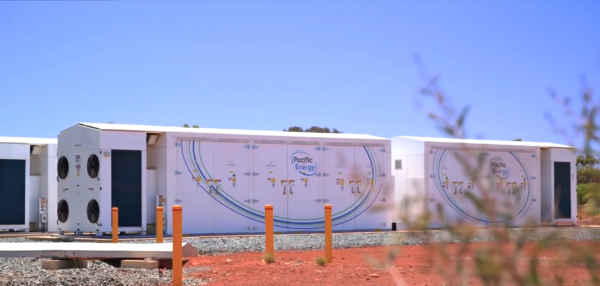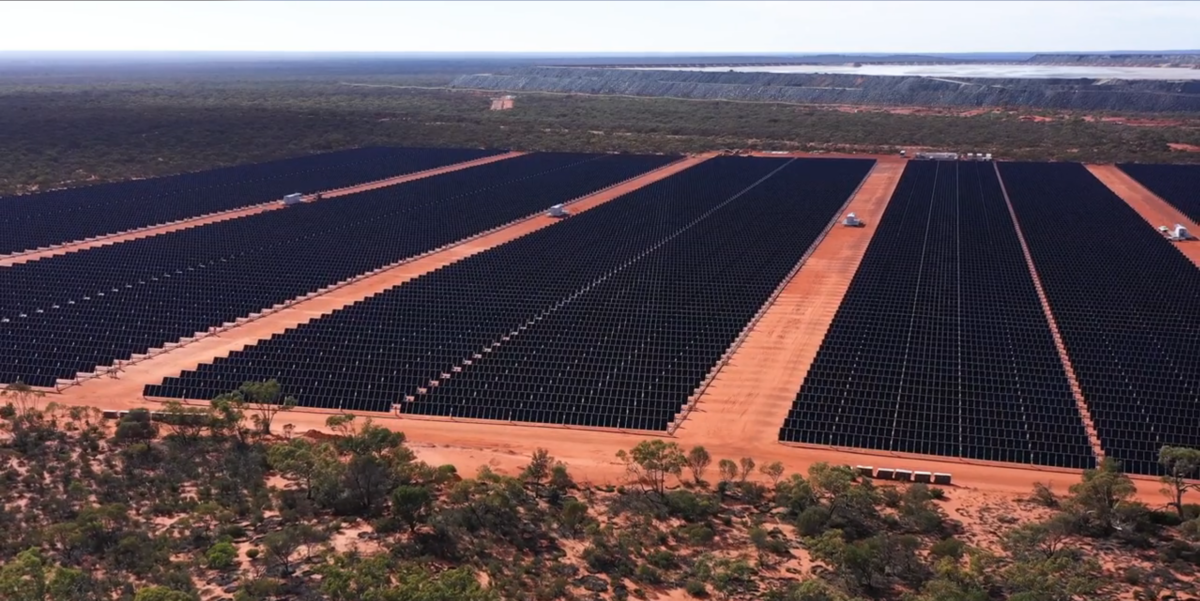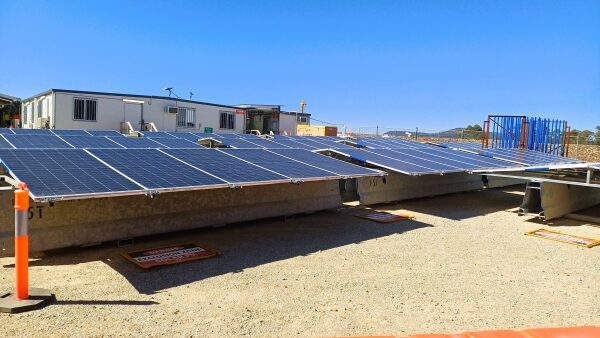Western Australia (WA)-headquartered remote energy development specialist Pacific Energy has reported better than expected performance from its 61 MW off-grid hybrid system installed at the Tropicana gold mine in WA.
Comprising a 24 MW solar farm, grid-forming 13 MW battery energy storage system (BESS) and 24 MW wind turbines, the system is located 330 kilometres northeast of Kalgoorlie, and adds to an existing 54 MW gas-fired power station, bringing the total capacity to 115 MW.
Owned by United States-headquartered gold mining company AngloGold Ashanti Australia and WA-headquartered gold producer Regis Resources, the mine’s renewable hybrid system operations are stabilised by Pacific Energy’s intelligent control solution, BESS and virtual synchronous machine technologies enabling an ultra-responsive hydrocarbons-off functionality, powering the mine with 100% renewables for extended periods.
The new system replaces legacy solutions like thermal-powered spinning reserve and synchronous condenser units, resulting in a state-of-the-art, technically advanced power system, which is expected to reduce the mine’s diesel and gas consumption for power generation by 96% and 50% respectively, or the equivalent of an average of 65,000 tonnes of carbon emissions annually.

Image: Pacific Green
Pacific Energy’s Chief Executive Jamie Cullen said the system was already outperforming targets.
“The new assets have already generated over 38,000 MWh of renewable energy, and that’s mostly while we were still bringing the equipment online,” Cullen said.
“We’re also on track to displace an average of more than 1,100 terajoules of gas with solar and wind generated power every year, and we expect to almost entirely displace diesel, which is now there purely for emergencies.”
Cullen added that in real-world terms, the fuel reductions will reduce Tropicana’s power generation emissions by upwards of 45%, which is equivalent to taking more than 14,000 cars off the road.
Despite significant challenges in the remote area including severe flooding during the construction phase, the project has been delivered on time and on budget.
AngloGold Ashanti has a global net carbon emissions reduction from renewable energy target of 30% by 2030, and Net Zero by 2050.
This content is protected by copyright and may not be reused. If you want to cooperate with us and would like to reuse some of our content, please contact: editors@pv-magazine.com.









By submitting this form you agree to pv magazine using your data for the purposes of publishing your comment.
Your personal data will only be disclosed or otherwise transmitted to third parties for the purposes of spam filtering or if this is necessary for technical maintenance of the website. Any other transfer to third parties will not take place unless this is justified on the basis of applicable data protection regulations or if pv magazine is legally obliged to do so.
You may revoke this consent at any time with effect for the future, in which case your personal data will be deleted immediately. Otherwise, your data will be deleted if pv magazine has processed your request or the purpose of data storage is fulfilled.
Further information on data privacy can be found in our Data Protection Policy.